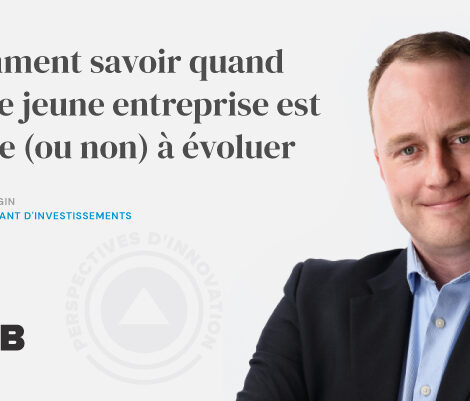- 5 novembre, 2015
- Capital de risque
- Comments : 0
NBIF Chair, Smart Skin and Resson Aerospace talk innovation challenges
At the 2015 Atlantic Province’s Economic Council conference today, Peter Goggin, CEO of NBIF-backed Resson Aerospace, Kumaran Thillainadarajah, CEO of Smart Skin Technologies, also NBIF-backed, and NBIF chair Cathy Simpson addressed the crowd in a panel discussion about the impact of innovation on the economy.
Resson is the maker of a high tech sensor system and aerial drones for the agricultural industry, and Smart Skin makes touch sensitive objects that travel through large factory production systems to deliver highly valuable process efficiency data.
What should we do in Atlantic Canada?
Peter Goggin: Collaboration is critical. One of our weakest areas is people power, and tapping into where people are. We have an innovative product, but we’re always competing with the industry who want to solve problems on their own. But that’s changing as more big companies are looking at startups to collaborate because they have no path to success for certain situations. « I’ve been really lucky to work with academics who instead of wanting to publish have understood
Kumaran T: Finding more skilled people and use immigration. I came to UNB from another country, when there was no start-up visa, and I had to prove to the Canadian Government that it was worthwhile to keep me here to continue to grow the company created out of my studies. Unfortunately this becomes an overwhelming all-encompassing task taking your attention away from the business. We need better ways to keep people here who come to study and end up starting a successful business like Smart Skin. Universities attract thousands of students from abroad, but they leave. We need to give them incentives to stay in New Brunswick.
Cathy Simpson: We need to create more companies in New Brunswick. For companies that are getting started up we need to get them to go from startup to scale up. How are we going all in to support startups in every way we can? What can be good at? Smart agriculture, smart grids, cyber security, big data; we have to think about what we already have in our ecosystem to build on. We believe that we have the talent in the province to transform the way the government is delivering services to citizens through private sector partnerships and startup companies.
Can you distil for us what are the three most relevant challenges to growth, and you’re looking to address right away?
Cathy Simpson: Sales. One of the biggest conversations going on in the startup community is developing an international sales programs. We don’t think of sales as a discipline as much as engineering. Finding the right talent who can create relationships, and as part of the funding exercise at NBIF is asking where is the money going to go you’re asking for, they say sales and marketing. It’s hard to hire good salespeople and keep good salespeople.
Kumaran T: We think about it in terms of how do we find the best salespeople. Ours are in Chicago and Munich because that’s where our customers are. Our company is in transition going from a hardware company to a big data company so that is the challenge we are facing.
What kind of strategies are you using for sales?
Kumaran T: We hired people in other markets because they already had relationships with our customers. It’s a much smoother process. Because we are a brand new technology we spent the first few years proving the technology. Then we found out that each customer believe that their plant is different than every other. So finding the right person in the company who « gets » your technology in the company and to be a champion for it, to be the supporter of our technology within their own company. This is what works best for us. Get operators interested and give them the tools they need to convince the higher ups.
Cathy Simpson: Sales is difficult especially when it comes to explaining difficult concepts, technology from the get go. They want to know can you solve my problem and do I like you? That has to be crafted into the strategy first before the deep technical solutions are explained. Technical jargon is a killer.
Peter Goggin: For our business the numbers speak for themselves. When we put out our stats about increase 12% yield with our technology big agricultural companies listen. But you have to have the team in place. The right people.
Kumaran T: We picked 1/2 dozen engineers at our company and made them semi-salespeople for explaining things to our future customers. We trained our engineers to be salespeople, and to follow up with them to discover what the value is they obtained. The salespeople don’t have the time or expertise to engage in that conversation, so our engineers needed to understand how to communicate in a new way.
Continue the conversation at the Innovation and Economic Outlook for New Brunswick by the Conference Board of Canada, December 1, 2015 at the Crowne Plaza Fredericton. As a sponsor, NBIF can offer you a 20% discount to attend. Email us at researchservices@nbif.ca to obtain the promo code.


